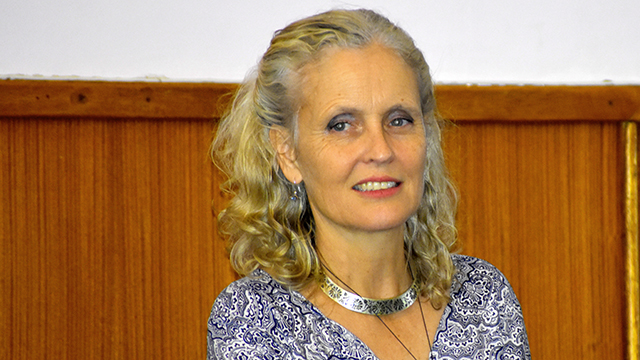
Recently, the world saw the majority of the Republic of Ireland voting in favour of repealing its Eighth Amendment, which has, up to now, had very stringent anti-abortion laws. However, this referendum vote comes shortly after the US’s seeming backwards-moving abortion policy Gag Rule introduced by the Trump-Pence administration on 22 May.
The US Gag Rule makes it illegal for family-planning providers, such as Planned Parenthood, to refer its clients for safe, legal abortions or to offer birth control options. Furthermore, this rule was introduced 16 months after the Global Gag Rule, which denies global organisations access to US government funding for services for, or information about, abortion.
These contradictory political shifts are a clear sign that the struggle for women’s reproductive rights is far from over and that much debate is still needed. In July, Rhodes University will be hosting the third iteration of the Abortion & Reproductive Justice: The Unfinished Revolution conference, done in partnership with the Sexual and Reproductive Justice Coalition of South Africa, the International Campaign for Women’s Right to Safe Abortion, the South African Department of Social Development, and the Open Society Foundation.
“Globally, what we are seeing is some much-needed abortion law progress, but at the same time, there is either progress reversal, as seen by the US introducing this gag rule, or no progress at all, as in the case of Northern Ireland electing to keep its restrictive abortion laws. We are clearly still far from winning the fight for reproductive justice,” said Professor Catriona Macleod, SARCHI Chair: Critical Studies in Sexualities and Reproduction at Rhodes University.
The second iteration of this conference took place in Belfast, Northern Ireland in 2016. “Northern Ireland’s abortion legislation does not match the rest of the UK, as the 1967 Abortion Act was never extended here. Our legislation is based on the 1861 Offenses Against the Person Act and on some case law from the 20th century,” explained Dr Fiona Bloomer from the School of Applied Social and Policy Sciences at Ulster University, where the conference was held. “This results in very restricted access levels to abortion. In the last reported year for instance, we had had less than 20 abortions carried out by the National Health System (NHS) in Northern Ireland.”
Despite the stance of the Northern Ireland Assembly not to instigate comprehensive reform of its anti-abortion laws, the conference that was hosted in 2016 had many positive impacts in the recent Republic of Ireland referendum. “It helped in building relationships between activists involved in campaigns on the island of Ireland and between academics and activists. It also highlighted health and human rights arguments which helped inform the wider debate, and provided many opportunities to learn from activists, health professionals and academics around the world,” Dr Bloomer said.
Furthermore, the Republic of Ireland’s recent referendum vote to relax the country’s anti-abortion laws has drawn further national and international attention to Northern Ireland, which will now be the only country in the United Kingdom where abortions are effectively almost completely banned.
The current suspension of the Northern Ireland Assembly, ongoing since January 2017, also means current focus to reform the law has shifted to the UK government. This focus comes soon after an investigation published in February 2018 by the UN body, CEDAW (the Committee on the Elimination of All Forms of Discrimination against Women), which determined that thousands of women and girls in Northern Ireland are subjected to grave and systematic violations of rights through being compelled to either travel outside Northern Ireland to procure a legal abortion or to carry their pregnancy to term.
As human rights obligations are a responsibility of the UK government, and not devolved to local administration, it has the power to intervene and introduce reforms to the abortion law.
Reflecting on the Abortion and Reproductive Justice conference in Belfast Professor Emerita Ann Thompson of Midwifery at the University of Manchester, noted that “The constant themes coming out of the various presentations were 1) that even if abortion is legal it is not always available, 2) those who have least access to abortion are the poor and those from ethnic minorities, 3) where abortion is not available, maternal mortality rises, and 4) abortion cannot be safe and free if the community is not safe and free.” (as published in the International Midwifery Journal in September 2016).
The lack of availability despite good legislation is evident in South Africa. “Even though abortion has been legal in South Africa for many years, as per the Choice of Termination of Pregnancy (CTOP) Act of 1996, we still have a lot of tragic cases resulting from women who go for unsafe and illegal abortions,” explained Prof Macleod.
Prof Macleod cited various reasons for this, including a lack of public health information about people’s rights under the CTOP Act, women fearing breaches of confidentiality or being recognised, stigma associated with abortion, lack of accessibility of clinics, and a shockingly low number of designated facilities that are actually in operation.
The Abortion & Reproductive Justice: The Unfinished Revolution III conference, taking place in Grahamstown in July, aims to increase awareness, circulate knowledge, and present workable solutions to the many pressing issues concerning reproductive injustices around the world.
“The reason for us proposing to host the conference in Africa was to bring the conversation, scholarship, and exploration of issues and activism to those living in jurisdictions where abortion access is restricted either legally or through social barriers, while at the same time hearing from scholars, activists and service providers from across the globe”, said Prof Macleod.
The event will include delegates from Burkina Faso, Benin, Uganda, Zambia, Nigeria, Malawi, Democratic Republic of the Congo, Zimbabwe, Mozambique, Madagascar, Ghana, Kenya, Mauritius, Madagascar and South Africa. Other countries represented will include Haiti, Jamaica, Venezuela, Argentina, Philippines, India, New Zealand, Australia, United Kingdom, Netherlands, and the United States of America.
For more on this conference, including programme details, keynote speaker bios, and how to register, please go to: http://www.repjusticeconference3.co.za.
